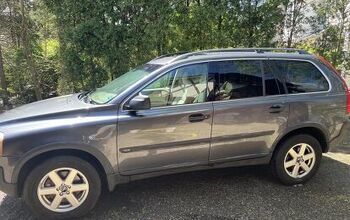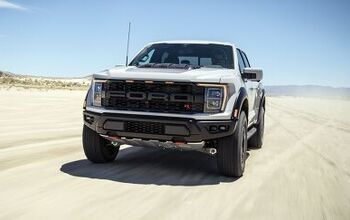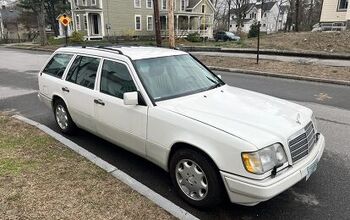UAW Names Independent Ethics Officer, Creates Moral Advisory Committee and Hotline

Hoping to bounce back from its ongoing corruption scandal, the UAW announced the placement of its new independent ethics officer on Wednesday. The union group expressed a need for an independent ethics officer after Rory Gamble took over for defamed former UAW President Gary Jones late last year.
“As the acting president, I’m committed to putting in place the right mechanisms to safeguard our union, regaining the trust of our members, and ensuring the misconduct that has recently come to light will never happen again,” Jones explained in November. “That is why I am ordering immediate actions that will lay the foundation for a more transparent, more accountable, and more responsible future for our union.”
The UAW then launched an national search for an ethics officer. This week, it settled on former chairman of the National Labor Relations Board Wilma Liebman.
According to Automotive News, Liebman will collaborate with Exiger LLC to serve as its new ethics ombudsman. Exiger employees will oversee the union’s new ethics hotline — investigating and screening reports as they come in.
“My job, first and foremost, will be to ensure UAW leaders and employees operate with the utmost integrity, and that any unethical conduct is promptly investigated and properly acted upon,” Liebman said in a statement.
Meanwhile, Jones has banned charitable contributions to any charity headed by UAW officials — as they’ve come under suspicion as an easy way to funnel bribes. Additional care was taken to address the finances of the union’s joint training centers for similar reasons. UAW officials were chided by federal prosecutors in 2017 for using training center funds for personal use. The issue ultimately kicked off investigations that lead to corruption charges for over a dozen officials.
From Automotive News:
Gamble last week indicated for the first time he’d be open to meeting with federal investigators to discuss the ongoing probe, which to date has resulted in charges against 14 people and 13 guilty pleas. U.S. Attorney Matthew Schneider, the lead prosecutor in the investigation, repeatedly said the union’s reform efforts don’t go far enough and that leaders have not cooperated as much as he’d like.
“We have to talk about real reforms, genuine reforms,” Schneider said earlier this month. “We’re not really seeing that right now.”
He suggested then that the union should consider direct election of officers as a meaningful step toward rooting out corruption.
Schneider has repeatedly said that RICO charges, similar to federal actions taken against the Teamsters union in the late 1980s, remain on the table.
The UAW also announced plans to establish an Ethics Advisory Committee incorporating some of the union’s Public Review Board, in addition to ordinary members. It plans to release additional details about the committee later this year, saying it has not yet ironed out all the details regarding the board’s structure.
“While our country and union navigate the difficult challenges of this pandemic, today’s actions mark an important step in the progress of our ethics reform agenda and underline our unwavering pledge to our members that their union is committed to operating at the highest level of integrity on their behalf,” Gamble said in the announcement.
“We know that in hiring Ms. Liebman to lead this important work, we are gaining an expert on labor law, widely respected for her knowledge and integrity, who will set a high bar for our union in the years to come. Also, with the infrastructure we are putting in place to ensure members can report financial or ethics complaints on a confidential basis, we are installing critical pieces to receive and investigate information about alleged wrongdoing.”
[Image: UAW]

A staunch consumer advocate tracking industry trends and regulation. Before joining TTAC, Matt spent a decade working for marketing and research firms based in NYC. Clients included several of the world’s largest automakers, global tire brands, and aftermarket part suppliers. Dissatisfied with the corporate world and resentful of having to wear suits everyday, he pivoted to writing about cars. Since then, that man has become an ardent supporter of the right-to-repair movement, been interviewed on the auto industry by national radio broadcasts, driven more rental cars than anyone ever should, participated in amateur rallying events, and received the requisite minimum training as sanctioned by the SCCA. Handy with a wrench, Matt grew up surrounded by Detroit auto workers and managed to get a pizza delivery job before he was legally eligible. He later found himself driving box trucks through Manhattan, guaranteeing future sympathy for actual truckers. He continues to conduct research pertaining to the automotive sector as an independent contractor and has since moved back to his native Michigan, closer to where the cars are born. A contrarian, Matt claims to prefer understeer — stating that front and all-wheel drive vehicles cater best to his driving style.
More by Matt Posky
Latest Car Reviews
Read moreLatest Product Reviews
Read moreRecent Comments
- Stan Reither Jr. Part throttle efficiency was mentioned earlier in a postThis type of reciprocating engine opens the door to achieve(slightly) variable stroke which would provide variable mechanical compression ratio adjustments for high vacuum (light load) or boost(power) conditions IMO
- Joe65688619 Keep in mind some of these suppliers are not just supplying parts, but assembled components (easy example is transmissions). But there are far more, and the more they are electronically connected and integrated with rest of the platform the more complex to design, engineer, and manufacture. Most contract manufacturers don't make a lot of money in the design and engineering space because their customers to that. Commodity components can be sourced anywhere, but there are only a handful of contract manufacturers (usually diversified companies that build all kinds of stuff for other brands) can engineer and build the more complex components, especially with electronics. Every single new car I've purchased in the last few years has had some sort of electronic component issue: Infinti (battery drain caused by software bug and poorly grounded wires), Acura (radio hiss, pops, burps, dash and infotainment screens occasionally throw errors and the ignition must be killed to reboot them, voice nav, whether using the car's system or CarPlay can't seem to make up its mind as to which speakers to use and how loud, even using the same app on the same trip - I almost jumped in my seat once), GMC drivetrain EMF causing a whine in the speakers that even when "off" that phased with engine RPM), Nissan (didn't have issues until 120K miles, but occassionally blew fuses for interior components - likely not a manufacturing defect other than a short developed somewhere, but on a high-mileage car that was mechanically sound was too expensive to fix (a lot of trial and error and tracing connections = labor costs). What I suspect will happen is that only the largest commodity suppliers that can really leverage their supply chain will remain, and for the more complex components (think bumper assemblies or the electronics for them supporting all kinds of sensors) will likley consolidate to a handful of manufacturers who may eventually specialize in what they produce. This is part of the reason why seemingly minor crashes cost so much - an auto brand does nst have the parts on hand to replace an integrated sensor , nor the expertice as they never built them, but bought them). And their suppliers, in attempt to cut costs, build them in way that is cheap to manufacture (not necessarily poorly bulit) but difficult to replace without swapping entire assemblies or units).I've love to see an article on repair costs and how those are impacting insurance rates. You almost need gap insurance now because of how quickly cars depreciate yet remain expensive to fix (orders more to originally build, in some cases). No way I would buy a CyberTruck - don't want one, but if I did, this would stop me. And it's not just EVs.
- Joe65688619 I agree there should be more sedans, but recognize the trend. There's still a market for performance oriented-drivers. IMHO a low budget sedan will always be outsold by a low budget SUV. But a sports sedan, or a well executed mid-level sedan (the Accord and Camry) work. Smaller market for large sedans except I think for an older population. What I'm hoping to see is some consolidation across brands - the TLX for example is not selling well, but if it was offered only in the up-level configurations it would not be competing with it's Honda sibling. I know that makes the market smaller and niche, but that was the original purpose of the "luxury" brands - badge-engineering an existing platform at a relatively lower cost than a different car and sell it with a higher margin for buyers willing and able to pay for them. Also creates some "brand cachet." But smart buyers know that simple badging and slightly better interiors are usually not worth the cost. Put the innovative tech in the higher-end brands first, differentiate they drivetrain so it's "better" (the RDX sells well for Acura, same motor and tranmission, added turbo which makes a notable difference compared to the CRV). The sedan in many Western European countries is the "family car" as opposed to micro and compact crossovers (which still sell big, but can usually seat no more than a compact sedan).
- Jonathan IMO the hatchback sedans like the Audi A5 Sportback, the Kia Stinger, and the already gone Buick Sportback are the answer to SUVs. The A5 and the AWD version of the Stinger being the better overall option IMO. I drive the A5, and love the depth and size of the trunk space as well as the low lift over. I've yet to find anything I need to carry that I can't, although I admit I don't carry things like drywall, building materials, etc. However, add in the fun to drive handling characteristics, there's almost no SUV that compares.
- C-b65792653 I'm starting to wonder about Elon....again!!I see a parallel with Henry Ford who was the wealthiest industrialist at one time. Henry went off on a tangent with the peace ship for WWI, Ford TriMotor, invasive social engineering, etc. Once the economy went bad, the focus fell back to cars. Elon became one of the wealthiest industrialist in the 21st century. Then he went off with the space venture, boring holes in the ground venture, "X" (formerly Twitter), etc, etc, etc. Once Tesla hit a plateau and he realized his EVs were a commodity, he too is focused on his primary money making machine. Yet, I feel Elon is over reacting. Down sizing is the nature of the beast in the auto industry; you can't get around that. But hacking the Super Charger division is like cutting off your own leg. IIRC, GM and Ford were scheduled to sign on to the exclusive Tesla charging format. That would have doubled or tripled his charging opportunity. I wonder what those at the Renaissance Center and the Glass House are thinking now. As alluded to, there's blood in the water and other charging companies will fill the void. I believe other nations have standardized EV charging (EU & China). Elon had the chance to have his charging system as the default in North America. Now, he's dropped the ball. He's lost considerable influence on what the standardized format will eventually be. Tremendous opportunity lost. 🚗🚗🚗


































Comments
Join the conversation
"Meanwhile, Jones has banned charitable contributions to any charity headed by UAW officials — as they’ve come under suspicion as an easy way to funnel bribes.". Meanwhile, as one door slams shut, another door in a darker part of the room eases open...
All this is far, _FAR_ too late however, better late than never . -Nate